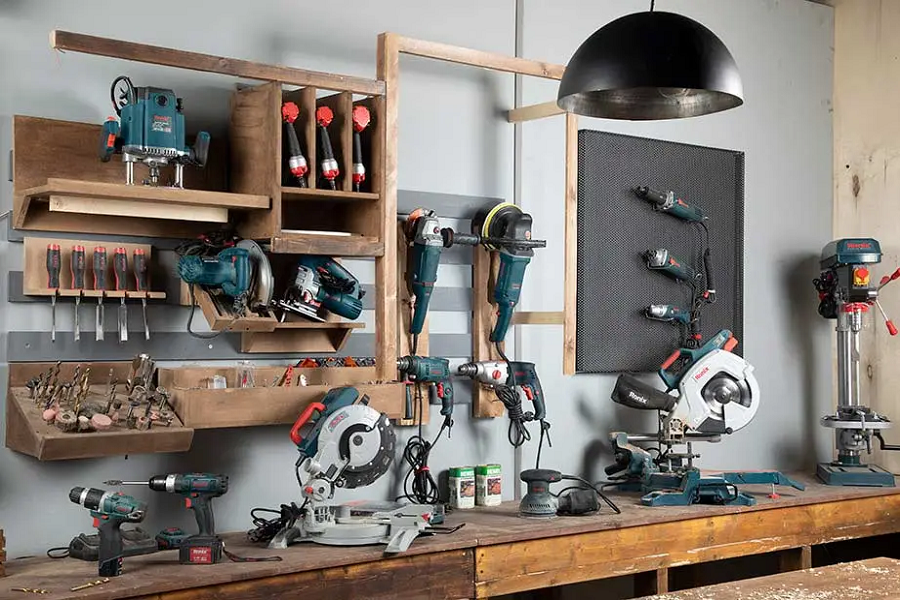Selecting the right power tools manufacturer can significantly impact the success and growth of your business. Whether you’re a DIY enthusiast, a wholesale distributor, a contractor, or a retail business, the quality, performance, and reliability of your power tools are paramount.
In this comprehensive guide, we delve into the critical factors to consider when choosing a power tools manufacturer. We break down each section further into sub-topics, providing you with a detailed understanding and guiding you step-by-step in making an informed decision that aligns with your specific needs.
Table of Contents
- Understanding Your Needs
- Evaluating Quality Standards
- Assessing Product Range
- Considering Pricing
- Checking Technological Capabilities
- Analyzing After-Sales Support
- Reviewing Manufacturer Reputation
- Exploring Customization Options
- Verifying Certifications and Compliance
- Building a Long-Term Relationship
- Making Your Decision: Taking the Next Step
1. Understanding Your Needs
– Identifying Your Business Requirements
Before you start the search for a manufacturer, it’s important to identify your specific business requirements. This involves understanding your customer base – are they professional contractors requiring high-performance tools, or are they homeowners looking for versatile, user-friendly tools? Identifying these requirements can help you find a manufacturer that aligns with your needs.
– Assessing Your Business Capacity
The scale of your operations is another factor to consider. If you operate on a large scale, you’ll need a manufacturer capable of meeting high volume demands. Conversely, if you’re a small business, you may prioritize quality over quantity, focusing on manufacturers who specialize in premium, high-performing tools.
2. Evaluating Quality Standards
– Importance of Quality
High-quality power tools not only perform better but also last longer, providing value for money. Therefore, the quality standard of a manufacturer is a significant factor. Look for manufacturers who use high-grade materials, have advanced manufacturing processes, and maintain stringent quality control measures.
– Consistency of Quality
Consistency in quality is just as important as the quality itself. Choosing a manufacturer that delivers consistent quality ensures that your customers always get top-notch products. This consistency can also help build your brand’s reputation for reliability and quality.
3. Assessing Product Range
– Variety of Products
Having a wide variety of power tools to offer to your customers is crucial. Look for manufacturers who offer a broad range of tools, from drills and saws to sanders and grinders. This diversity allows you to cater to a larger customer base, each with their unique needs.
– Availability of Specialized Tools
If your business caters to a market that requires specialized tools, ensure the manufacturer can provide these. For instance, if you serve woodworking professionals, you might need a manufacturer who produces high-quality wood lathes or routers.
4. Considering Pricing
– Balancing Quality and Cost
While pricing is an important consideration, it should not compromise the quality of the tools. Cheaper tools might seem like a good deal initially, but they could lead to higher costs in the long run due to frequent replacements or repairs. Opt for manufacturers who offer a good balance between cost and quality.
– Understanding Pricing Structure
Understanding a manufacturer’s pricing structure can help you plan your budget better and increase profitability. Some manufacturers offer discounts for bulk purchases, which can significantly reduce your procurement costs.
5. Checking Technological Capabilities
– Innovation and Technology
The power tools industry is constantly evolving, with new technologies and innovations improving tool performance and functionality. Choose a manufacturer who stays abreast of these developments and incorporates them into their products.
– Adapting to Market Trends
The manufacturer should also be adaptable to market trends. For instance, as cordless power tools gain popularity for their convenience and mobility, ensure your chosen manufacturer offers high-quality cordless options.
6. Analyzing After-Sales Support
– Customer Support and Services
Good after-sales support is a reflection of the manufacturer’s commitment to their customers. A manufacturer offering robust after-sales services, such as easy availability of spare parts, timely repair services, and responsive customer support, can be a valuable partner in your business growth.
– Warranty Coverage
Comprehensive warranty coverage is another important aspect of after-sales support. It gives your customers confidence in their purchase and protects them—and you—against manufacturing defects or premature failures.
7. Reviewing Manufacturer Reputation
– Track Record and Experience
A manufacturer’s reputation can provide valuable insight into their reliability. Consider their track record, years of experience, and feedback from other businesses. A reputable manufacturer will have a proven history of delivering high-quality products and excellent customer service.
– Customer Reviews and Testimonials
Customer reviews and testimonials are a great way to gauge the manufacturer’s reputation. They can provide first-hand information about the quality of the products and the manufacturer’s responsiveness to customer issues.
8. Exploring Customization Options
– Tailored Solutions
Depending on your business needs, you might require customized tools. Some manufacturers offer customization options, allowing you to tailor the tools to meet your specific requirements. This can be particularly beneficial if you cater to a niche market.
– Branding Opportunities
Branding is another aspect of customization. Some manufacturers allow you to brand the tools with your logo, helping you build your brand image and foster customer loyalty.
9. Verifying Certifications and Compliance
– Safety and Quality Certifications
Certifications like ISO, CE, or UL indicate that the manufacturer’s products meet international safety and quality standards. These certifications assure you—and your customers—of the product’s reliability and safety.
-Compliance with Ethical Practices
In today’s socially conscious world, ensuring the manufacturer follows ethical practices is essential. This includes fair labor practices, environmental responsibility, and responsible sourcing.
10. Building a Long-Term Relationship
– Partnership Approach
Choosing a power tools manufacturer is not just about making a purchase—it’s about building a long-term partnership. A good manufacturer will be interested in your business’s success and work with you to meet your goals.
– Growth Opportunities
A long-term partnership with a reliable manufacturer can open up opportunities for mutual growth. As your business grows, so does the manufacturer’s, leading to better products, better prices, and a stronger presence in the market.
11. Making Your Decision: Taking the Next Step
Evaluating the above factors will help you make an informed decision that best serves your business needs. It is essential to partner with a power tool manufacturer who offers high-quality products, competitive pricing, reliable after-sales support, and customization options that meet all relevant certifications and compliance standards.
Choosing wisely takes time, but it is well worth the effort when setting yourself up for long-term success. Take a look at the manufacturers in your area, create comparison checklists based on our guide here, and be sure to ask pertinent questions along the way. Once you’ve narrowed down to your final selection of power tool manufacturers take time to build a connection with them; this can play an important role in helping you meet future demand as your business continues to grow. Investing in the right power tools manufacturer means investing in the future of your organization; now is the time to make an informed choice.





